Black with blood cancer
On this page, we explore experiences of blood cancer for people of Black, African Caribbean or mixed heritage. Find out what you need to know about blood cancer, and where to get help.
Why Black with blood cancer?
There are health inequalities in the UK that affect how people of Black, African Caribbean or mixed heritage experience blood cancer, from diagnosis to treatment and beyond. Research reports that:
- 6 out of 10 Black people in the UK (60%) do not believe their health is equally protected by the NHS compared to Caucasian people. (Clearview, 2020)
- Ethnic bias and racial discrimination lower the standards of care that people from Black, African Caribbean or mixed heritage receive, and lead to higher mistrust of the healthcare system. (Clearview, 2022)
- In the UK, people of Black, African Caribbean or mixed heritage are less likely than Caucasian people to take part in a clinical trial to treat blood cancer. (Smart, 2021)
- Not enough Black people are registered to donate stem cells. This means that people of Black, African Caribbean or mixed heritage are less likely than Caucasian people to find an unrelated matched donor for a stem cell transplant (ACLT and Anthony Nolan)
- People of Black, African Caribbean or mixed heritage who spot symptoms of cancer are taking almost twice as long to be diagnosed compared to Caucasian people, and may face up to a year’s delay in receiving a diagnosis. (Bristol Myers Squibb and Shine Cancer Support, 2024)
"Three things – being young, being Black, and being female – have definitely affected my experience of blood cancer and I want to talk about it. To help other women like me."
Read Mphango's story

Know the symptoms
The most common symptoms of blood cancer include:
- Unexplained bruising or bleeding
- Unexplained pain or aching in your bones or joints that interferes with your sleep or daily activities
- Unexplained pain, discomfort or feeling full (bloated) in your stomach area
- Frequent, persistent or severe infections
- Unexplained fever or a high temperature
- Unexplained weight loss
- Tiredness that doesn’t improve with rest or sleep
- Lumps or swelling anywhere on your body
- Drenching night sweats
- Paleness (pallor)
- Shortness of breath
- An unexplained rash or itchy skin anywhere on your body that doesn’t improve with treatment.
Symptoms of blood cancer don't vary between ethnic groups, but some symptoms can look different on different skin tones. It’s important for any healthcare professionals you see to understand this.
For example, pallor, caused by a lack of red blood cells, can be checked by pulling down the lower eyelid. The inside will look pale pink or white rather than dark pink or red. This is true of everyone, no matter what colour your skin is.
We have more information about the signs and symptoms of blood cancer on another page as well.
There is also a diagram showing the symptoms of blood cancer below:
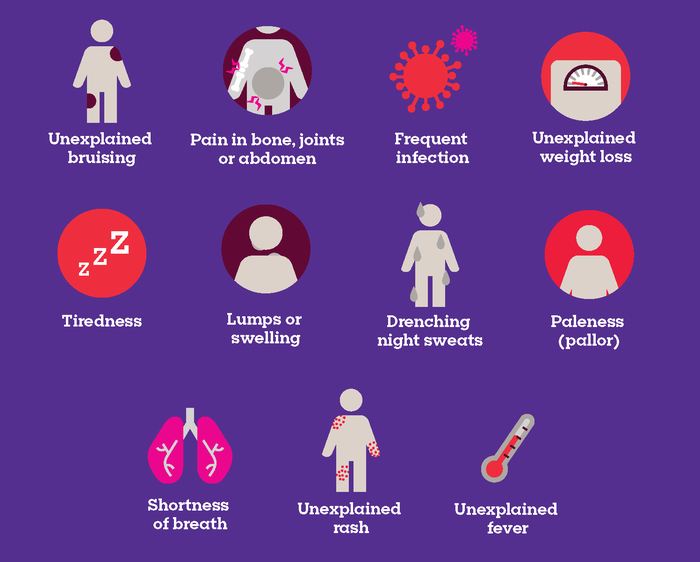
What to do if you have symptoms
Speak to your GP if you have one or more of the symptoms above, especially if they last a long time or aren’t normal for you.
The next step would usually be a blood test. Your GP should be able to give you one, or they may direct you to a nearby clinic or hospital instead. When your results are ready, your GP will call you to explain what happens next.
Many symptoms of blood cancer are also symptoms of other things, so you may have to have more tests if your blood test results are unclear.
Call us for support if you don’t feel your concerns are being taken seriously.
“I want to take my diagnosis and make something good out of it. That means stepping out of my comfort zone and using my experience to raise awareness of blood cancer, especially among the black community.”
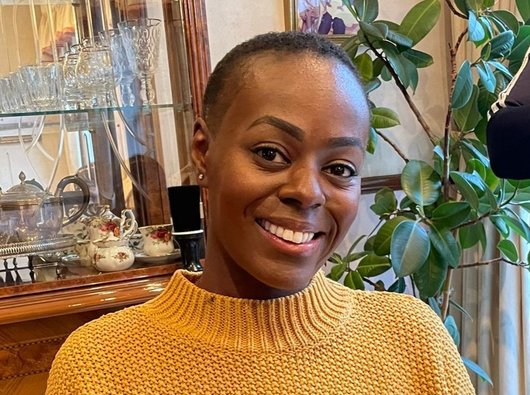
Types of blood cancer
There are over a hundred types of blood cancer, but these are the five main ones:
- leukaemia
- lymphoma
- myeloma
- myelodysplastic syndromes (MDS)
- myeloproliferative neoplasms (MPNs) – essential thrombocythaemia (ET), polycythaemia vera (PV) and myelofibrosis (MF)
Anyone can get blood cancer, but some types are more common depending on things like age, sex and ethnic background. We don't know why.
One type of blood cancer, myeloma (sometimes called multiple myeloma) is almost three times as common in people of Black, African Caribbean or mixed heritage. But awareness amongst these communities can be very low.
Myeloma affects plasma cells in your bone marrow and can cause a range of symptoms including severe pain in your back, ribs or hips. Find out more about the symptoms of myeloma.
“I was called in to discuss my results and I remember that like it was yesterday. I went there with my wife; we sat down and were told ‘we have diagnosed you with multiple myeloma’ – I had never heard of it.”
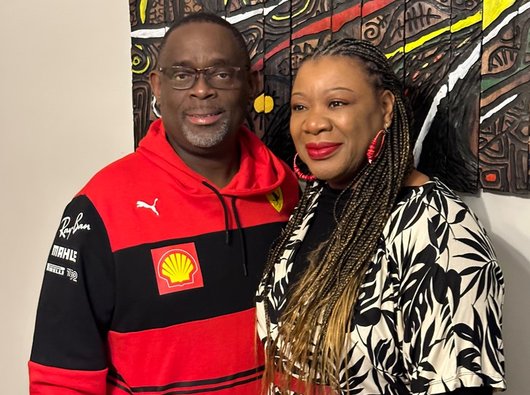
Stem cell transplants
A stem cell transplant is a treatment that can cure some types of blood cancer.
Some transplants use your own blood stem cells, but some people need a donor (or allogeneic) transplant using cells from another person.
If a donor stem cell transplant is an option for you, your hospital team will look for a suitable donor whose tissue is a good match for yours. They will start by testing any siblings you have and may test other relatives.
If none of your relatives are a good match, your hospital team will look for a donor on the blood stem cell registers, where people sign up to donate stem cells.
It can be harder to find an unrelated matched donor if you are Black or of African Caribbean or mixed heritage. People are more likely to match with donors from a similar ethnic background, and fewer people of Back, African Caribbean or mixed heritage are signed up to donor registers.
Charities like the ones listed below are working to raise awareness of stem cell donation in the Black community and can offer information and support:
You can also contact us.
If you are a family member or friend of someone with blood cancer, you can register to donate stem cells through any of the organisations above. Even if you are not a match for your loved one, you may be able to help someone else desperate for a transplant to save their life.
"During my time in hospital, I noticed a tragic pattern: many patients from ethnic minority backgrounds, like me, suffered more due to a lack of awareness and the scarcity of blood or stem cell donors. This realisation inspired me to raise awareness."
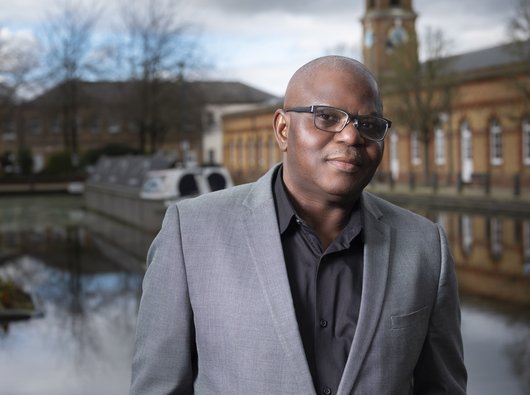
Coping with hair loss
Some treatments for blood cancer can cause your hair to get thinner and fall out. It’s understandable that a lot of people are upset by this, especially as hair has particular cultural and historical relevance in Black, African Caribbean and mixed heritage communities.
Hair is part of our identity, so to lose it, you lose so much - your control and choices over how you look.
- Yvonne, diagnosed with AML in 2018
Caring for Afro-textured hair
Kinky and curly hair is more fragile and prone to breaking than straight hair. It may help to avoid relaxers, heat and strong products while you're having treatment.
You may also want to consider using lighter lotions and oils, for example castor oil, that are gentler on your hair. It’s important to find products that work for you, so don’t be afraid to try a few different things until you find something that suits your style.
If you cover your hair at night, continuing to do so with satin-lined bonnets and headwraps will also help protect your hair and soothe your scalp.
We have more information about caring for Afro-textured hair during blood cancer treatment.
Although we understand that the NHS is working to improve things, you may still find it hard to get a suitable wig on the NHS. We have information about finding an Afro-textured wig and other practical ways to manage hair loss.
“I said to the children ‘you can paint my head - you can use glitter and do whatever you want and that will help my hair grow back.’ It made it okay to talk about my hair not being there. Six months later it started to grow back."
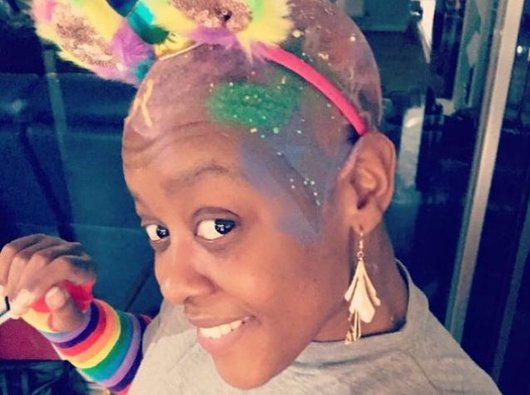
Practical help
If you or a loved one have blood cancer or are waiting for a diagnosis, there are a few ways we can help:
- Our support service team can talk you through the conversations you’d like to have with your GP and other medical professionals.
- Our online and free printed information can help you make sense of your diagnosis, explore possible treatments and understand the future a bit better.
- Our online community forum offers a safe space to share how you’re feeling with people who understand.
- Our clinical trials support service can help you access the latest treatments for your condition.
Clinical trials
Taking part in a clinical trial can give you access to new treatments that aren’t otherwise available.
Our clinical trials support service can help you understand what trials are, what’s available in your situation and whether it’s the right thing for you. And if you join a trial, we’ll support you through it.
Making decisions about clinical trials
See what Advanced Nurse Practitioner Millie has to say about clinical trials, the barriers, the myths and asking the right questions.
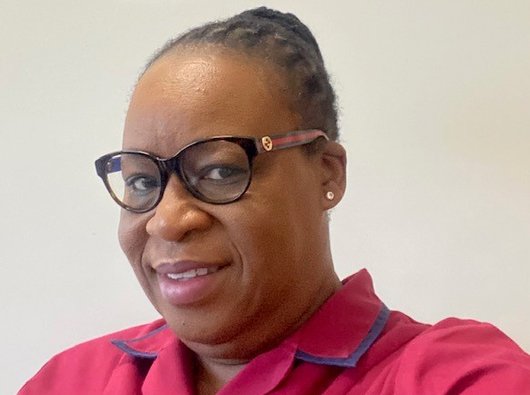
The Blood Cancer Action Plan
Blood Cancer UK worked with people affected by blood cancer and clinicians to understand differences in blood cancer care and write recommendations on how to improve these inequalities.
We shared our report with key decision makers in government and the NHS in September 2024 and are now working to put our recommendations into action.
Find out more about the Blood Cancer Action Plan.
“We talk about being on this team that we wouldn’t have chosen to be on, but that now we’re on it, we’ve met some amazing people and it’s opened up new opportunities and ways of seeing the world. I now share my story so that it may help someone else.”
To share your story, please email the health information team at [email protected] with the subject line: "Black with blood cancer"
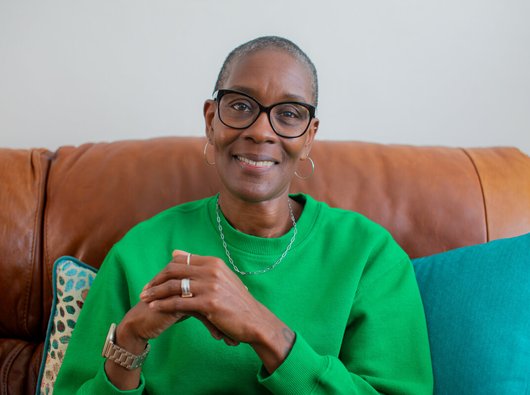
Other places to get support
- Cancer Black Care (CBC) provides support, education and advocacy for all those living with and affected by cancer, with an emphasis on helping people of colour.
- Cancer Education are dedicated to providing support to the Black, Asian, Minority Ethnic and Refugee (BAMER) communities including a helpline, educational resources and complementary therapies.
- Shine Cancer Support provides an online space for adults from Black, Asian and minoritised ethnic communities to come together and connect with others from a similar cultural background.
- Black Health Initiative provide support and information on health, wellbeing and community initiatives to Black people in Leeds or online throughout the UK.
You can also join our online community forum to read stories and chat with other people in a similar situation, or sign up to our Involvement Network to help inform our work and hear about new ways to get involved.
This information has been accredited with the PIF TICK, the UK's only quality mark for trusted health information.
Last full review July 2025. Next full review due July 2028. We may make factual updates to the information between reviews.
We would like to thank Clinical Nurse Specialist Millicent Blake McCoy for checking the clinical accuracy of this information. Thank you also to everyone who supported the creation of this page and shared their experiences of living with blood cancer.
